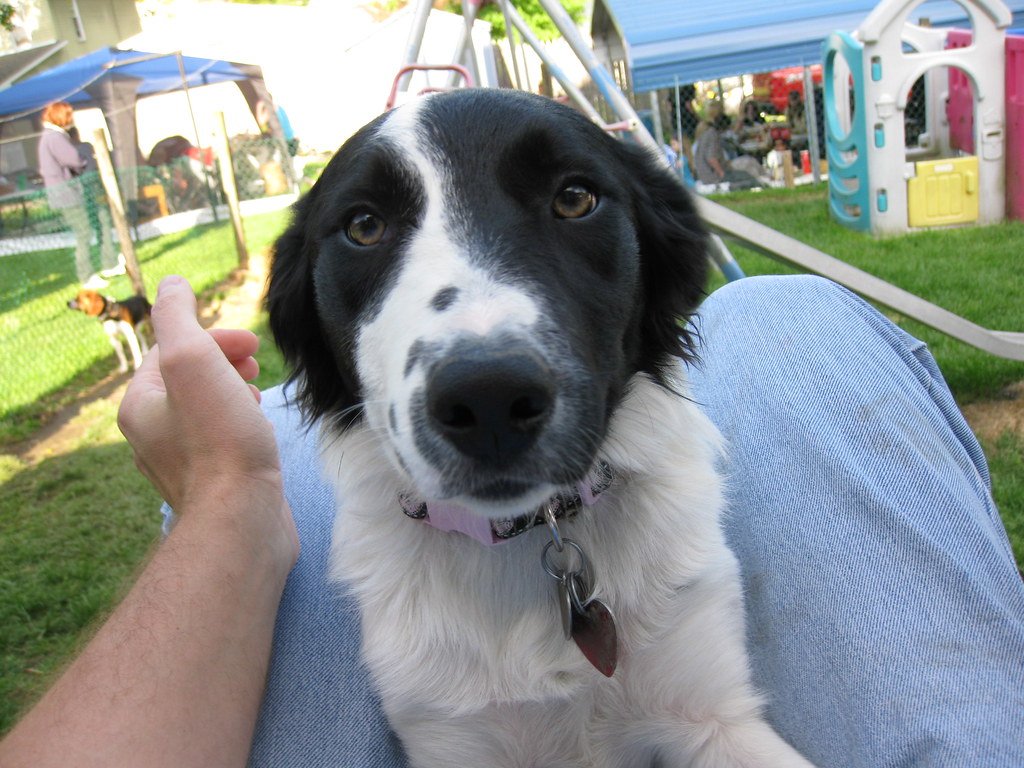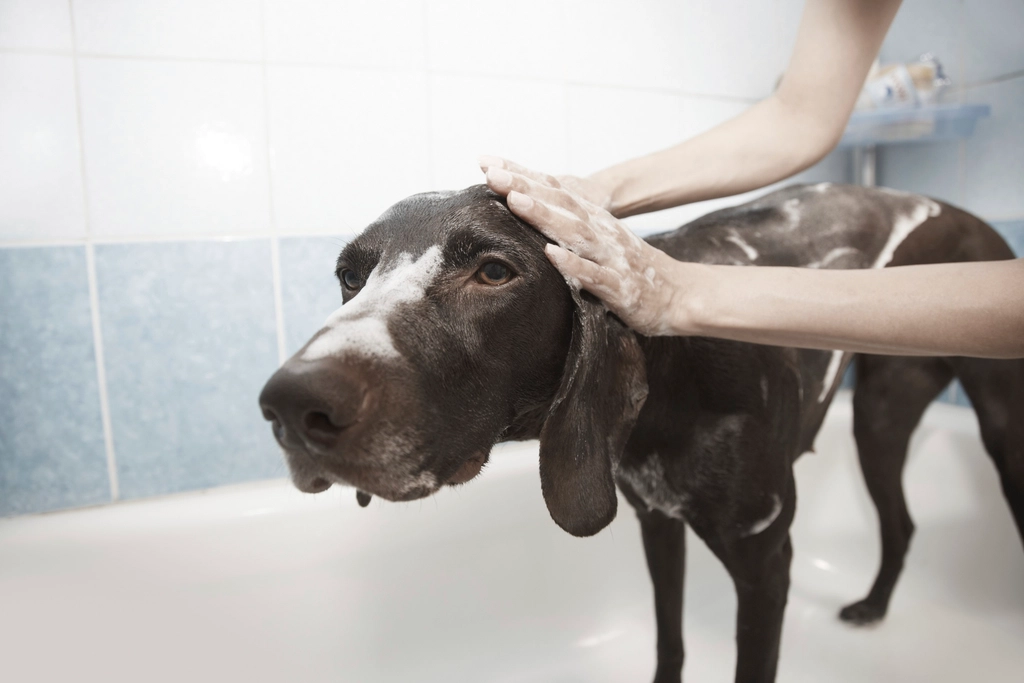Retirement is supposed to be a golden chapter—finally, time for yourself, a slower pace, and perhaps dreams of gentle walks with a loyal furry companion by your side. But what if the reality isn’t quite so peaceful? Many retirees are surprised to discover that some dogs, lovable as they are, can be more work than they bargained for. If you find yourself feeling overwhelmed, you’re not alone. Let’s dig into ten unmistakable signs that your dog might be just a bit too demanding for your retirement lifestyle.
Constant Need for Attention

Some dogs simply can’t stand being alone. They follow you from room to room, gaze at you with pleading eyes, and whine if you sit down to read the paper or work on a puzzle. This can be charming at first, but over time it can start to feel like you’re parenting a toddler all over again. If your dog constantly craves your attention, you may find it hard to enjoy your own quiet hobbies or even socialize with friends.
A dog that demands your presence every moment can make it difficult to have any personal space. This can be especially exhausting during retirement, when you might have hoped for a little solitude or flexibility in your daily routine. Instead of relaxing, you may end up spending your days trying to appease a dog that just can’t be left alone—even for a bathroom break.
Excessive Barking or Whining

Retirement life often means savoring peaceful mornings and leisurely afternoons. But a dog that barks at every passing car, neighbor, or squirrel can quickly shatter that peace. Excessive vocalizing is more than just a minor annoyance; it can be deeply stressful and might even lead to tension with your neighbors.
For some retirees, the constant noise becomes a real source of anxiety. Maybe you’re worried about complaints from others in your community or just wish you could hear yourself think. If your dog’s vocalizations seem never-ending, it’s a clear sign they might be too high-maintenance for the tranquil lifestyle you imagined.
High Exercise Requirements

Some breeds, especially herding or sporting dogs, have seemingly endless energy. They need long walks, frequent play sessions, and lots of mental stimulation. If you thought retirement would be a time to slow down, a high-energy dog can throw a wrench in your plans. Instead of relaxing, you might find yourself clocking more miles every day than you ever did at the office.
These energetic pups can also become destructive or develop behavioral issues if they don’t get enough activity. Suddenly, your home and garden may bear the brunt of their pent-up energy. If you’re not up for marathon walks or daily games of fetch, a dog with high exercise needs might just be too much for your retirement rhythm.
Frequent Health or Grooming Needs

Some dogs need constant brushing, regular haircuts, or even special medical care. Whether it’s daily medications, frequent vet visits, or simply managing chronic conditions, these tasks can be overwhelming. You may have imagined your retirement as a time to travel or relax—not to become a part-time groomer or nurse.
Caring for a dog with intensive needs can also get expensive, straining both your time and your budget. If your dog’s care demands start feeling like a full-time job, you might find your dreams of a carefree retirement slipping out of reach.
Destructive Behavior When Left Alone
Many dogs struggle with separation anxiety or boredom when their humans step out. If you return home to shredded pillows, chewed-up shoes, or scratched doors, it’s a sign your dog struggles to cope without you. This kind of behavior isn’t just frustrating—it can be heartbreaking and costly to repair.
For retirees who hope to come and go freely, destructive habits can feel like a ball and chain. You might start skipping outings or feel trapped in your own home, all to avoid another mess or tantrum. When your dog can’t handle being alone, it can put a real damper on your retirement plans.
Difficulty Adjusting to Change
Some dogs are creatures of habit. They become stressed if you rearrange the furniture, change your routine, or bring guests into the house. This can be particularly tough if you hope to travel, have family visit, or simply enjoy a bit of spontaneity in your golden years.
If your dog reacts to any new situation with anxiety, barking, or even aggression, it can make you hesitant to make changes in your life. Instead of enjoying the freedom retirement offers, you might find yourself tiptoeing around your dog’s sensitivities, always worried about setting them off.
Territorial or Protective Behavior
While a watchdog can be comforting, overly protective dogs can make life stressful. If your dog barks at every visitor, lunges at other dogs, or acts aggressively toward delivery people, it quickly becomes more of a burden than a benefit. You may end up feeling isolated or hesitant to invite friends over.
Such territorial behavior can also make travel or pet-sitting difficult, since your dog may not accept new people or environments easily. Instead of simplifying your life, a dog with these traits can add layers of complication you never expected.
Special Dietary Needs
If your dog requires homemade meals, special supplements, or a strict feeding schedule, it can feel like you’re running a canine restaurant. Preparing special food, monitoring portions, and shopping for unique ingredients can eat into your day and drain your energy.
While you want your dog to be healthy and happy, you may start to feel that your own needs are coming second. For retirees who hope to keep things simple, a dog with complicated dietary needs can make daily life unexpectedly stressful.
Escaping or Roaming Tendencies

Some dogs are born escape artists. They dig under fences, dash out the door, or slip through the tiniest gaps in search of adventure. Chasing after a runaway dog can be exhausting—and even dangerous, especially for retirees with mobility issues.
If you find yourself constantly patching fences or scanning the neighborhood for your furry Houdini, it can take a toll on your peace of mind. Instead of feeling secure at home, you may always be on high alert, worried about the next great escape.
Difficulty with Training or Obedience
Some dogs are harder to train than others, no matter how patient or experienced you are. Persistent disobedience, leash-pulling, or ignoring commands can be both embarrassing and exhausting, especially if you had hoped for a well-mannered companion.
The daily struggle for control can sap the joy from your relationship with your dog. If you’re spending more time correcting bad behavior than enjoying each other’s company, it may be a sign that your dog’s needs are outstripping your desire—or ability—to keep up during retirement.
Retirement is a time to relax, recharge, and enjoy life at your own pace—and the dog you bring into that lifestyle should enhance, not overwhelm, your days. If a dog shows signs of being overly energetic, needy, or difficult to manage, it may not be the right fit for your new rhythm. Choosing a companion that matches your energy and priorities is key to a joyful, low-stress bond. The right dog will complement your retirement—not complicate it.

Andrew Alpin from India is the Brand Manager of Doggo digest. Andrew is an experienced content specialist and social media manager with a passion for writing. His forte includes health and wellness, Travel, Animals, and Nature. A nature nomad, Andrew is obsessed with mountains and loves high-altitude trekking. He has been on several Himalayan treks in India including the Everest Base Camp in Nepal.






